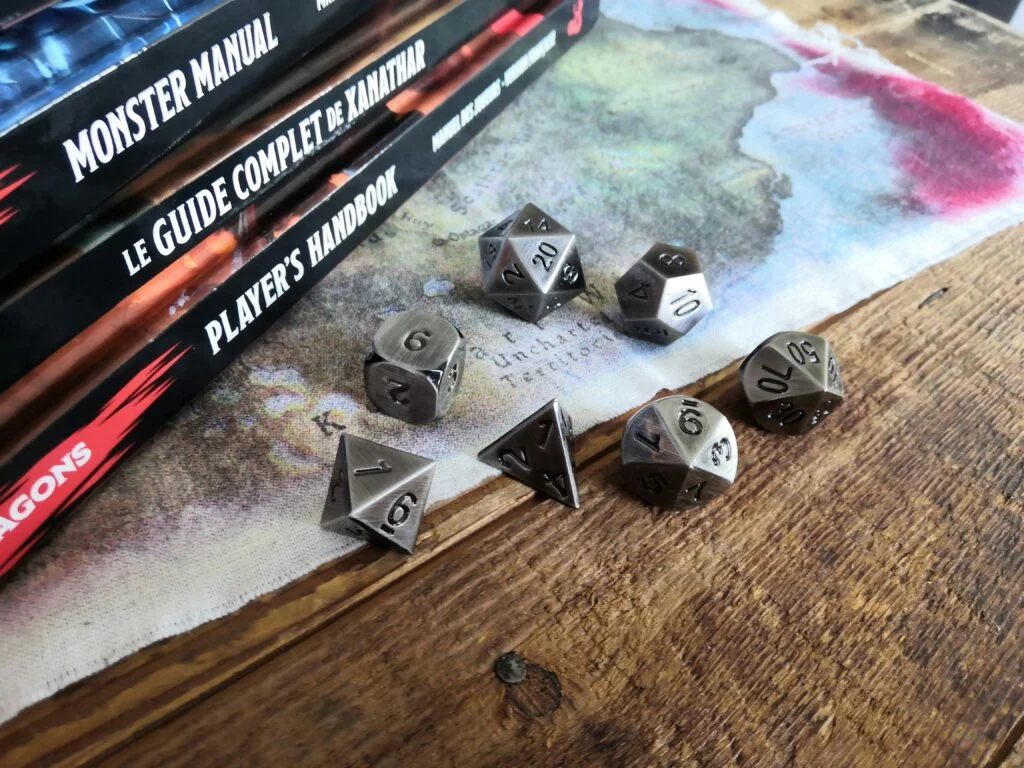Roleplay to the Extreme: A New Phenomenon in Gaming
The emergence of immersive roleplay experiences within online gaming communities has given rise to a unique cultural phenomenon. Games like Grand Theft Auto V (GTA RP), Rust, Arma, and DayZ have witnessed a surge in player engagement through their extensive roleplay (RP) capabilities. This trend is characterized by gamers who fully embrace their character’s narrative, often leading to extreme forms of roleplay that blur the lines between reality and fiction. The detailed storytelling and world-building facilitated by these games allow players to craft intricate plotlines that mimic cinematic experiences.
In these virtual environments, a wide array of characters and scenarios come to life, showcasing players’ creativity and emotional investment in their roles. The act of faking deaths, for instance, serves as a dramatic storytelling device, enhancing the entertainment value for both the individuals involved and the audience. Players often design complex arcs that can take surprising turns, making each session a unique narrative journey. This evolving trend encourages collaboration and social interaction, fostering a sense of community among participants who share similar interests and creative aspirations.
The appeal of extreme roleplay can be attributed to the desire for escapism, as players find solace in these elaborate narratives amidst their daily lives. The thrill of dramatic confrontations, unexpected plot twists, and character development evokes a sense of engagement that traditional gameplay may not fully offer. Moreover, these intense RP sessions provide a platform for personal expression and exploration of diverse personas, allowing gamers to step outside their everyday identities. Consequently, players become emotionally invested not only in their characters but also in the overarching narratives that unfold within these immersive worlds.
Witnessing a Virtual Funeral: An Emotional Experience
Participating in a virtual funeral within a roleplay server can evoke a profound emotional response, akin to attending a ceremony in the real world. In this immersive digital environment, players come together to honor the virtual “departed,” often engaging in heartfelt tributes that echo the sentiments found in traditional eulogies. The atmosphere is typically charged, with many participants visibly moved, demonstrating that the connections formed in these virtual spaces can be as significant as those in real life.
During my experience, I witnessed players arriving at the designated area, each dressed in somber attire reflective of grief, their characters joined in a collective mourning. As the ceremony commenced, players shared meticulously crafted obituaries that chronicled the life of the character being memorialized. These narratives, rich with history and backstory, fostered a sense of authenticity, validating the importance of the lost character within the community. Tears were not uncommon; players often expressed their sorrow through emotive text and reactions, showcasing a genuine investment in the roleplay narrative.
However, the emotional gravity of a virtual funeral can fluctuate dramatically due to unexpected events. A common occurrence is the dramatic ‘resurrection’ of a character presumed to be deceased. Such moments can evoke strong reactions among participants, ranging from joy to frustration depending on the context of the roleplay. These instances serve to highlight the dynamic nature of virtual interactions, where the line between reality and fiction often becomes blurred. The interplay of drama surrounding these events adds layers to community engagement, impacting how players perceive their relationships with one another.
These virtual funerals reveal the capacity of roleplay servers to foster emotional experiences. They exemplify how deeply invested players can become, not only in the narratives they create but also in the community forged through shared experiences of loss and celebration within the digital realm.
The Drama of Resurrection: What Happens Next?
In the dynamic world of roleplay servers, the act of resurrection is laden with implications that extend beyond mere gameplay mechanics. When a character experiences a dramatic revival, it often serves as a catalyst for conversations, rumors, and conflicts among players. The emotional weight carried by such events tends to resonate deeply within the community, creating an atmosphere ripe for speculation and drama. Players often find themselves engaging in discussions surrounding the legitimacy of the resurrection, with opinions diverging widely. Some view it as a necessary narrative device, while others perceive it as a breach of immersion that undermines the foundational principles of roleplay.
The psychology of these dramatic turnarounds reveals interesting insights into player behavior and relationships within the gaming community. Resurrection can create a profound shift in the social dynamics of a server, escalating existing rivalries and forging new alliances. Players may find themselves re-evaluating their relationships with one another, leading to a broader discourse about loyalty, betrayal, and the importance of character development. The emotional investment players have in their characters often spills over into their interactions, making every resurrection a potential flashpoint for either conflict or camaraderie.
Furthermore, the aftermath of a resurrection can lead to polarized opinions, generating chatter that persists long after the event itself. Observers might form camps based on their alignment with or opposition to the actions of the resurrected character, thus heightening tensions and fostering a charged environment. The ripple effect of such incidents can influence future interactions, as players navigate these evolving narratives and seek to define their positions in a landscape transformed by dramatic events. Ultimately, the act of resurrection in roleplay servers highlights not just the fragility of character lives, but also the intricate social structures that underpin the community itself.
Where Do We Draw the Line? Creativity vs. Mental Health
Roleplaying within online gaming communities serves as a powerful tool for creativity and self-expression. Players construct intricate narratives and develop complex characters, often achieving a level of emotional investment that mirrors real life. However, the phenomenon of faking deaths in roleplay raises significant ethical questions regarding the balance between creative expression and mental health considerations. It is crucial to explore the effects this practice may have on the players involved, particularly those who might find themselves overly immersed in the virtual world.
For many gamers, roleplay offers a safe escape from everyday life, allowing them to explore various facets of their identity and confront challenges without real-world repercussions. Yet, when the line between fiction and reality blurs—especially with actions such as faking death—the potential for psychological repercussions increases. This behavior may signal an unhealthy investment in their characters and narrative arcs, which could lead to negative mental health outcomes. Faking death can instigate feelings of loss or grief, not just for the character but for the community, prompting questions about the psychological impact of such actions.
Additionally, the community’s response to these instances of faked deaths can complicate matters further. While some may applaud the creativity involved, others may express concern for individuals who delve deeply into roles that may mirror their struggles. Thus, it is essential to navigate this nuanced terrain with care, weighing the artistic merits against the potential emotional fallout. The responsibility lies among players to foster a supportive environment in which creativity can flourish without adversely affecting mental wellbeing.
Engaging in open discussions about the implications of such roleplay practices could pave the way for healthier gaming experiences. Establishing boundaries within these virtual realms could alleviate the risk of adverse psychological consequences, ensuring that creativity remains a fulfilling aspect of the gaming experience.
Beautiful Creativity or Mental Red Flag? Analyzing Motivations
In recent years, the phenomenon of players faking deaths in roleplay servers has garnered significant attention. This behavior raises intriguing questions regarding the underlying motivations of such actions. On one hand, proponents argue that faking a death is an essential aspect of creative storytelling within the gaming world. Roleplaying games inherently encourage players to inhabit diverse characters with rich backgrounds, complex emotions, and sometimes tragic narratives. For many, orchestrating a character’s death can serve as a dramatic climax to an ongoing storyline, enabling players to engage with themes of loss and rebirth, thereby enriching their immersive experience. This creative expression showcases a deep commitment to the narrative, indicating a healthy engagement with the art of storytelling.
However, this trend also invites scrutiny from a psychological perspective. Critics of the practice argue that faking death may identify deeper mental or emotional issues among players. Some suggest that individuals resorting to such extreme measures might seek attention, validation, or escape from real-life problems. In this view, the act of faking a death can signal an unhealthy attachment to the roleplay environment, potentially indicating that the individual struggles with their identity or self-worth outside the game. Mental health professionals have noted that while roleplay can be therapeutic for some, it may also serve as a coping mechanism for those grappling with loneliness, anxiety, or depression.
The debate continues within the gaming community. Some members celebrate the creativity displayed in such dramatic performances, believing they add a significant layer of depth to roleplay experiences. Others express concerns about the potential consequences of these actions, emphasizing the importance of understanding the motivations behind them. This multifaceted issue underscores the need to balance creative expression with an awareness of psychological well-being, suggesting that motivations may vary widely among players.
The Addictiveness of Roleplay: What’s the Appeal?
Roleplaying in immersive environments has emerged as a captivating avenue for gamers, drawing them into the rich tapestry of storytelling and interactive narratives. One primary appeal of roleplay is the opportunity for players to craft and inhabit their own characters, allowing for profound exploration of identity and personal expression. Within these digital realms, individuals can assume roles that may be far removed from their real-life experiences, facilitating escapism and emotional catharsis. This transformation is alluring; it provides players with a creative outlet and a chance to define their narratives in ways that are often constrained by reality.
Moreover, community bonding plays a crucial role in the addictiveness of roleplay gaming. Gamers are not only participants in their stories but are also part of a larger community that shares their experiences and creativity. By collaborating on various storytelling arcs, players forge connections with others who share similar interests and passions. These social interactions foster a sense of belonging, as players find camaraderie and support within their virtual communities. Such relationships can enhance the emotional stakes of every roleplay scenario, thereby increasing engagement and investment in the unfolding narratives.
Additionally, the thrill of experience is another significant factor that keeps players returning to roleplay servers. Each session holds potential for unforeseen events and character development, creating an unpredictable landscape that is ripe for exploration. The excitement of navigating challenges, forming alliances, or even facing adversaries adds a dynamic layer to gameplay that can be deeply satisfying. This blend of storytelling, social interaction, and experiential thrill keeps players continuously returning to the immersive worlds they love, revealing the complex psychological hooks that render roleplaying an increasingly addictive pastime.
Community Reactions: Support and Criticism
The trend of faking deaths in roleplay servers has ignited a wide spectrum of reactions across various gaming communities. On one end, there exists a faction of players who laud the creativity involved in such acts, viewing them as an innovative means to enhance storytelling and gameplay dynamics. For these players, the ability to manipulate character arcs by pretending to die introduces an exciting layer to roleplay experiences, allowing for unexpected twists and emotional moments. Supporters argue that such creativity fosters deeper engagement, making the narratives more immersive and enriching for all participants.
Conversely, there are critical voices emerging from within the gaming community, raising valid concerns regarding the implications of such actions. Detractors argue that faking deaths can disrupt the flow of gameplay and create confusion among players. These gamers express that while creativity is important, it should not come at the expense of the overall experience of the server. Criticism also extends to the potential for this behavior to undermine the seriousness of roleplay environments. Some players feel that repeatedly witnessing fake deaths can diminish the emotional stakes that roleplay endeavors aim to cultivate, potentially leading to a desensitized and disengaged player base.
<pfurthermore, a="" and="" anxieties="" are="" arise="" as="" balance="" becomes="" between="" challenges="" character="" clashes="" collaborative="" constant="" contend="" continue="" could="" creativity="" criticism="" critics="" deception="" dialogue="" discussions="" disruptive="" diverse="" dynamics="" ecosystem="" elucidate="" eroding="" established="" evolve,="" experiences.="" for="" fundamental="" future="" gaming="" highlight="" in="" increasingly="" innovative="" interactions.="" is="" likely="" normalization="" norms.="" nuanced.="" of="" ongoing="" opposing="" p="" perspectives="" pillar="" players,="" possible="" practices="" regarding="" representations="" result="" roleplay="" servers.
The Influence of Social Media on Roleplay Trends
In recent years, social media has emerged as a powerful platform for shaping roleplay trends, particularly in gaming communities. These platforms serve as vital spaces for players to showcase their dramatic narratives, often leading to a culture where extremes in roleplay—such as faking deaths—are not only normalized but celebrated. The pervasive influence of apps like Twitter, TikTok, and Instagram allows players to share their experiences and storylines, generating a community dialogue about various roleplay practices.
Players frequently post videos or threads detailing their impactful in-game moments, including instances where characters undergo dramatic transformations or face perilous situations, such as death. Such content tends to attract significant attention, eliciting reactions from audiences that may unknowingly reinforce the trend of extreme roleplay actions. As these narratives garner views and engagements, they not only validate the behaviors exhibited by the players but also encourage others to adopt similar practices in their own gameplay, thus propagating a cycle of imitation.
Furthermore, specific communities develop around shared interests in intense roleplay experiences. Social media groups and forums become breeding grounds for creative storytelling, where individuals exchange ideas on how to heighten the drama. This environment actively cultivates the faking of deaths as players discuss innovative techniques to maintain the immersion and excitement of their roleplay scenarios. The visibility that social media provides enables the spread of these trends on a larger scale than ever, leading to a mainstream acceptance of extreme roleplay, even in instances that might shock or alienate others within the gaming community.
As these platforms continue to evolve, their role in shaping the future of roleplay trends—including faking deaths—remains significant. The interconnected nature of social media facilitates rapid dissemination of ideas, helping to transform temporary fads into established practices within the expansive world of gaming and roleplay.
Future of Roleplay: Trends to Watch
The landscape of roleplay gaming continues to evolve as players explore new themes and methodologies to engage in immersive experiences. As we observe the growing phenomenon of gamers faking deaths within roleplay servers, several future trends are anticipated that may shape the nature of these interactions. Faking deaths has gained significant traction as it allows for dramatic storytelling and heightened emotional stakes among players. Consequently, this trend may become more prominent as the culture surrounding roleplay grows richer and more complex.
One significant prediction is the increasing acceptance and normalization of these dramatic narratives. As roleplaying games continue to attract diverse audiences, the boundary between authentic experiences and dramatics may blur further. This could lead to gamers utilizing death-faking not just for storytelling but as a means to establish a distinct cultural identity within roleplay communities. As a result, players may gravitate toward servers that foster creative expression, allowing for richer, more nuanced interactions.
Developers, in response to this changing dynamic, might introduce features that enhance storytelling elements, such as systems that reward creative roleplay or mechanisms that allow for more seamless transitions between in-game deaths and comebacks. Enhanced tools for managing narrative complexities could support this burgeoning trend, driving engagement and community discussions surrounding these practices. Additionally, developers may face challenges in balancing player freedom with maintaining gameplay integrity, necessitating innovative approaches to moderation and community management.
As the roleplay culture continues to evolve, understanding the implications of faking deaths and other similar trends will be crucial. Players, developers, and communities will need to navigate the shifts while ensuring an inclusive and engaging experience for all. Ultimately, the future of roleplay is poised for excitement and transformation, highlighting the ongoing collaboration between players and developers in this dynamic environment.

It could cover a range of topics related to health, wellness, beauty, personal growth, and social issues, all from the perspective of striving for beauty, intelligence, youthfulness, and impartiality





